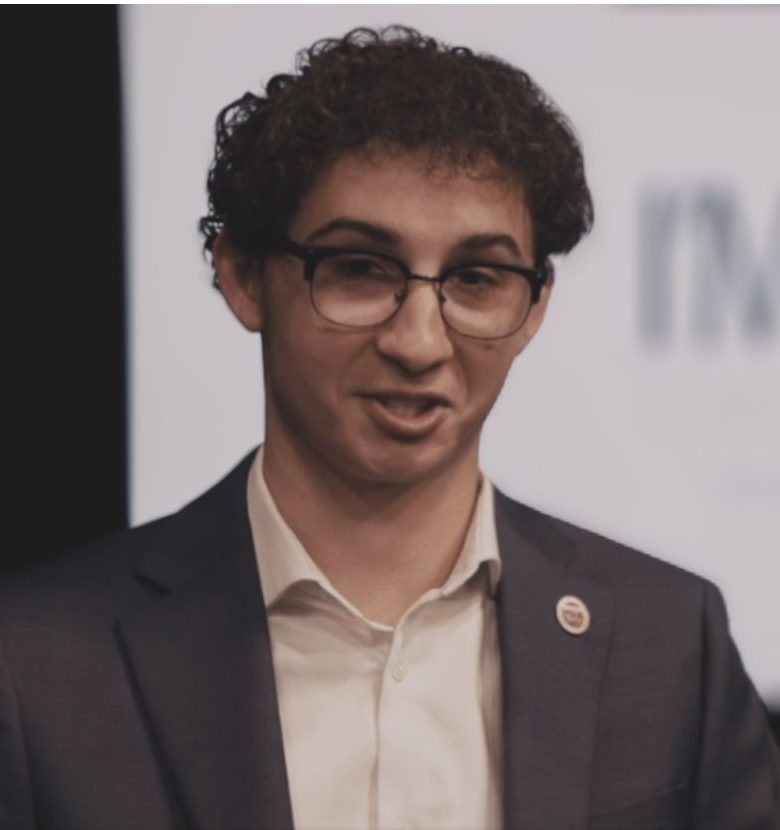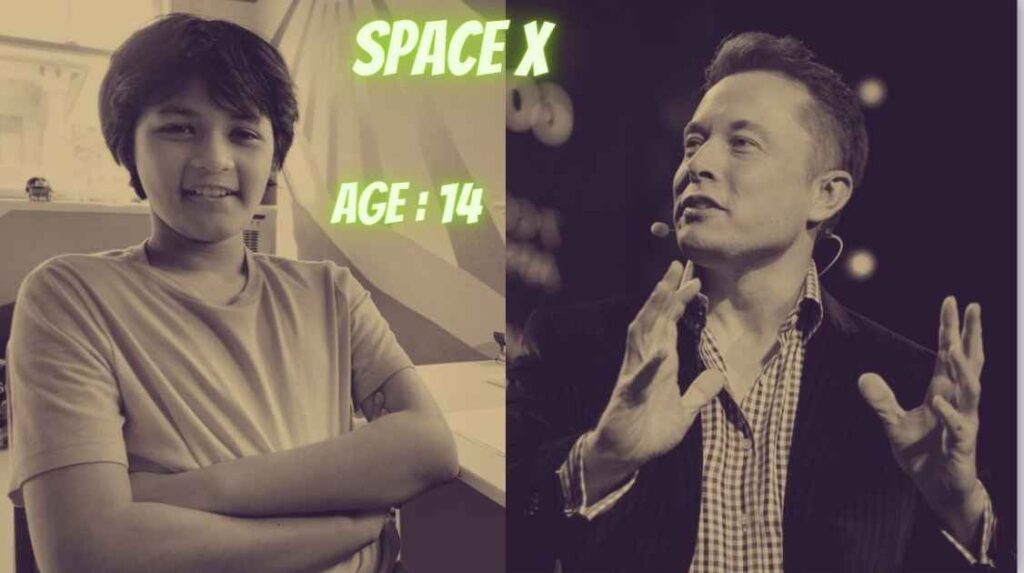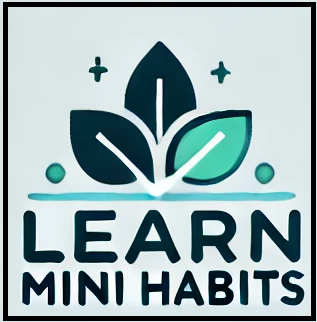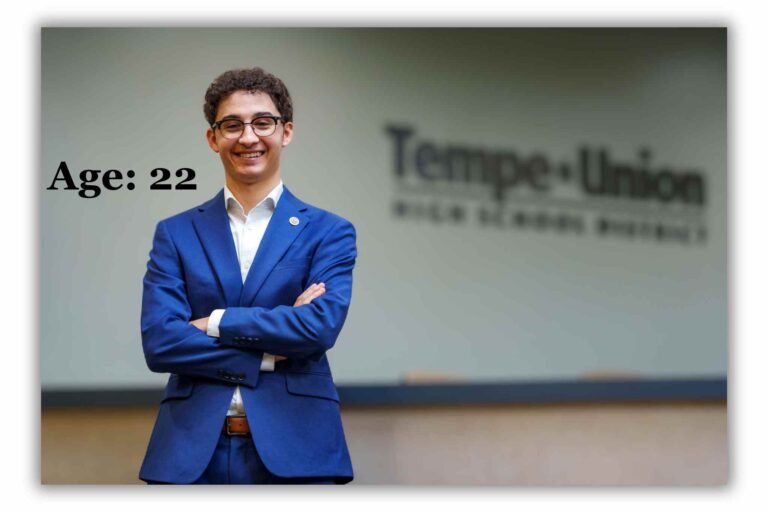A 22 Year Old Leading Educational Transformation in USA: he assumed the role of school board president in one of the largest school districts in Arizona, the Tempe Union High School District.
In the rapidly evolving landscape of American education, there’s a transformative shift happening—one that defies traditional age norms. This new era in education is marked by a profound realization that learning knows no age boundaries, and the pursuit of knowledge is a lifelong journey.
Defying Age Norms: A New Era in Education
In the ever-evolving landscape of American education, a remarkable transformation is underway. Young educators are emerging as the leaders of change, challenging traditional norms, and reshaping the way we view teaching and learning. This new generation of educators is driven by passion, innovation, and a deep commitment to making a positive impact on the lives of their students.
Profiles of Inspiring Young Teachers
Let’s take a closer look at some inspiring young teachers who are leading the way towards a brighter future in American education. These individuals are breaking stereotypes, shattering glass ceilings, and proving that age is not a barrier to making a significant impact in the classroom.
Armando Montero: Age is just a number
A shining example of the positive impact young educators can have on the educational landscape in the United States.

Armando Montero’s journey in education is a testament to the transformative power of young educators. At just 22 years old, he assumed the role of school board president in one of the largest school districts in Arizona, the Tempe Union High School District. What makes Armando’s story truly remarkable is that he embarked on this leadership path even before graduating from high school himself.
“It’s important to have more young people sitting in office, particularly at this level — at the school board,” Montero emphasizes. “To be one of those five voices, to bring a perspective that is not traditionally there.”
Armando Montero’s story is a shining example of the positive impact young educators can have on the educational landscape in the United States. His journey inspires us to recognize that age is not a limitation when it comes to leading educational transformation and making a lasting difference in the lives of students and communities.
In this new era of American education, young educators like Armando Montero are pioneers of change, driving innovation, inclusivity, and excellence in our schools. They remind us that the future of education is in capable hands, and their passion for teaching lights the way for generations to come.
Kairan Quazi – A 14-Year-Old Software Engineer at SpaceX

Introducing Kairan Quazi, a prodigious young talent who has defied age limits in the realm of aerospace technology. At the tender age of 14, Kairan has achieved what many can only dream of – securing a coveted position as a software engineer at SpaceX, one of the foremost innovators in the aerospace industry.
- Kairan Quazi’s Extraordinary Journey
Kairan’s remarkable journey into the world of technology commenced at an exceptionally young age. By the time he was just 2 years old, he was already proficient in speaking complete sentences. Even during his kindergarten years, Kairan left an indelible mark, astonishing both his peers and teachers with his knowledge of news stories he had heard on the radio.
However, the turning point in Kairan’s journey came during the third grade when he realized that his schoolwork wasn’t challenging enough. In response to this unique situation, his parents made the extraordinary decision to enroll him in a community college in California when he was just 9 years old. This change in environment allowed Kairan to thrive and embrace learning at a level that truly matched his potential.
- Exceptional Talent Acknowledged
Kairan’s exceptional talent did not go unnoticed. He astoundingly scored in the 99.9th percentile in an IQ test, further solidifying his status as a prodigy. At the young age of 11, he took a significant step in his academic journey by transferring to Santa Clara University to pursue a degree in computer science and engineering.
Throughout his academic path, Kairan continued to amaze. He secured an internship as an artificial intelligence research fellow at Intel Labs, where he showcased his exceptional capabilities. Later, at the age of 14, Kairan embarked on a role as a machine-learning intern at the cyber-intelligence firm Blackbird.AI, contributing to the development of an “anomaly detection statistical learning pipeline” designed to identify manipulated social media content.
- Joining SpaceX’s Starlink Team
In a recent post on LinkedIn, Kairan expressed his exhilaration at becoming a part of SpaceX’s Starlink engineering team. He conveyed his gratitude to SpaceX for recognizing his talent and not allowing his age to be a limiting factor. Preparations are underway as Kairan and his mother plan to relocate to Redmond, Washington, where he will contribute to SpaceX’s groundbreaking work.
Kairan Quazi’s story serves as a testament to the power of determination, talent, and innovation. His LinkedIn biography reflects his aspiration to dedicate his career to addressing challenging issues and effecting radical innovation for the common good. Joining SpaceX is a substantial step toward fulfilling this dream.
As he becomes a member of the Starlink team at SpaceX, one can only imagine the groundbreaking contributions Kairan will make to the future of aerospace technology. His story reinforces the idea that age should never be a barrier to pursuing one’s passions and making a meaningful impact in the world of technology. Indeed, the sky is not the limit; it is just the beginning.
Emily Carter – Redefining Science Education
Emily Carter, a 28-year-old science teacher in California, is a shining example of dedication to her craft. Armed with a background in environmental science and a passion for sustainability, she has transformed her classroom into a hub of hands-on learning. Through innovative experiments and real-world applications, Emily engages her students in exploring complex scientific concepts while instilling a sense of environmental responsibility.
David Rodriguez – Fostering Inclusivity
David Rodriguez, a 26-year-old special education teacher in New York City, is on a mission to create an inclusive and welcoming environment for all students. His commitment to understanding the unique needs of each learner has earned him accolades from both students and parents. David’s approach goes beyond textbooks; he focuses on building connections, promoting empathy, and ensuring that every student has an equal opportunity to thrive.
Impact of Literature on Education
Literature, a captivating form of written art, plays a vital role in American education. It’s a unifying force that transcends age, connecting generations through shared stories, cultures, and human experiences. In the United States, literature acts as a bridge between young learners and seasoned individuals, fostering a sense of community in the world of education.
The impact of literature on education goes far beyond the acquisition of knowledge. It cultivates empathy by immersing readers in diverse narratives, enabling them to better understand the intricate facets of the human condition. Moreover, literature nurtures critical thinking, encouraging readers to analyze characters, themes, and symbolism—skills that are invaluable in the U.S. educational landscape.
In this new era of American education, the power of books and literature shines brightly. It’s a power that doesn’t discriminate based on age or background. Whether you’re a young American student beginning your educational journey or an adult rediscovering the joys of learning, books and literature are your constant companions, offering wisdom, inspiration, and a sense of unity in the diverse and vibrant world of U.S. education.
Embracing Talent and Potential Over Age
In the dynamic spheres of education and technology, the tales of these remarkable young individuals underscore the significance of recognizing and nurturing talent and passion, regardless of age. Age, they demonstrate, is merely a number when it comes to catalyzing meaningful transformation. Let’s delve into the inspiring narratives of Armando Montero, Kairan Quazi, Emily Carter, and David Rodriguez.
These extraordinary individuals have shattered preconceptions and affirmed that excellence is not beholden to age. They embody the conviction that talent, tenacity, and innovation are the true drivers of success, irrespective of one’s age.
In embracing talent and potential beyond age, we open up a world of opportunity, one where youthful voices, fresh perspectives, and unbridled passion propel advancement in education, technology, and beyond. Their stories, a wellspring of inspiration, serve as a reminder that, on life’s journey, the only constraints that truly exist are those we impose upon ourselves. Together, we can break free from these confines, forging a world where talent knows no age, and potential knows no boundaries.
Let their stories be a guiding light for us all, a testament to the boundless potential that resides within every individual. In doing so, we can collectively sculpt a world where age is not a factor in the pursuit of dreams, and where each person’s unique abilities contribute to the greater good.
Innovation through Ageless Learning
In the rapidly evolving landscape of American education, the concept of ageless learning is gaining traction. It signifies a shift in the way we perceive education, highlighting that learning knows no age boundaries. Instead, it’s a lifelong journey that continuously adapts and thrives through the integration of technology, creativity, and a dedication to lifelong learning for individuals of all ages.
The educational landscape in the United States is undergoing a significant transformation. A central element of this shift is the acknowledgment and celebration of age diversity in education. This change signifies a commitment to fostering inclusivity, promoting mutual understanding, and nurturing a culture of lifelong learning.
Harnessing Technology and Creativity
In the digital age, technology has emerged as a powerful enabler in shaping the way we acquire knowledge. From interactive online courses to virtual classrooms, technology has made education accessible to learners of all ages.
Online Learning Platforms: Prominent platforms like Coursera, edX, and Khan Academy offer a diverse array of courses and resources. These platforms provide individuals with the opportunity to acquire new skills, explore their interests, and advance their careers, all from the comfort of their homes.
Virtual Reality (VR) and Augmented Reality (AR): Immersive technologies such as VR and AR are revolutionizing the educational landscape. They allow learners to step into historical events, delve into complex scientific phenomena, or even embark on virtual journeys to distant planets, all through highly engaging simulations.
Creativity in Learning: Beyond technology, creativity plays a pivotal role in ageless learning. It encourages innovative teaching methods and unconventional approaches to problem-solving. Creative learning environments foster a culture of continuous growth, inspiring individuals to think outside the box.
Promoting Lifelong Learning for All Ages
The concept of lifelong learning is not merely a buzzword; it embodies a cultural shift that embraces education as an ongoing journey. In the United States, this notion is gaining ground in various ways.
Adult Education Programs: Across the nation, adult education programs offer opportunities for individuals to earn high school diplomas, acquire new trade skills, or passionately pursue areas of interest. These programs emphasize flexibility and personalized learning experiences.
Community Learning Centers: Local community centers, libraries, and organizations often host workshops, seminars, and skill-building sessions for people of all ages. These resources promote community engagement and personal growth.
Workplace Learning: Forward-thinking employers recognize the value of upskilling their workforce. Many U.S. companies invest in employee development programs, providing courses and training to ensure their teams remain competitive and adaptable.
In this ageless learning paradigm, age is no longer a limiting factor in one’s educational journey. Technology, creativity, and a commitment to lifelong learning have opened doors for individuals of all ages to explore, grow, and innovate.
The United States, with its diverse and dynamic educational ecosystem, stands at the forefront of this transformative movement. It is a place where age is not a barrier but a symbol of experience, where learning is a lifelong adventure, and where innovation flourishes through ageless learning.
Fostering Inclusivity and Mutual Understanding
- A Multigenerational Learning Environment: American classrooms have evolved into multigenerational spaces, where students of various age groups share educational experiences. This diversity provides a unique opportunity for individuals to interact across generational lines, breaking down stereotypes and nurturing a sense of unity.
- Building Empathy and Collaboration: Age-diverse classrooms offer a rich environment for cultivating empathy and collaboration. Younger students can learn from the life experiences of their older peers, while older learners benefit from fresh perspectives and innovative ideas brought by their younger counterparts. This exchange of knowledge and viewpoints enhances the overall educational experience.
- Promoting Lifelong Learning: Encouraging learners of all ages to coexist in educational settings promotes the concept of lifelong learning. It conveys a powerful message that education is not confined to a specific life stage, aligning with the American values of continuous self-improvement and personal growth.
Embracing Ageless Education: A Collective Responsibility
In the United States, the embrace of ageless education extends beyond the classroom; it represents a collective responsibility that encompasses society as a whole.
- Community Learning: Beyond formal education, community learning centers, libraries, and local organizations play vital roles in making education accessible to individuals of all ages. These centers offer workshops, seminars, and skill-building opportunities, ensuring that learning remains a lifelong pursuit.
- Workplace Development: American employers increasingly recognize the value of upskilling their workforce, regardless of age. They invest in employee development programs, providing training and courses to help employees adapt to evolving job requirements and industry trends.
- Government Initiatives: Government initiatives and policies also support ageless education. Federal and state-level programs aim to eliminate barriers to education, enabling individuals to pursue learning opportunities at any life stage.
In summary, age diversity in education characterizes the modern American educational landscape, signifying a dedication to inclusivity, empathy, and the belief that education is a lifelong journey. Embracing ageless education is not solely the responsibility of educators; it is a collective endeavor encompassing communities, workplaces, and government policies. In the United States, it reflects a shared commitment to the notion that knowledge transcends age, and learning is a path open to all.

